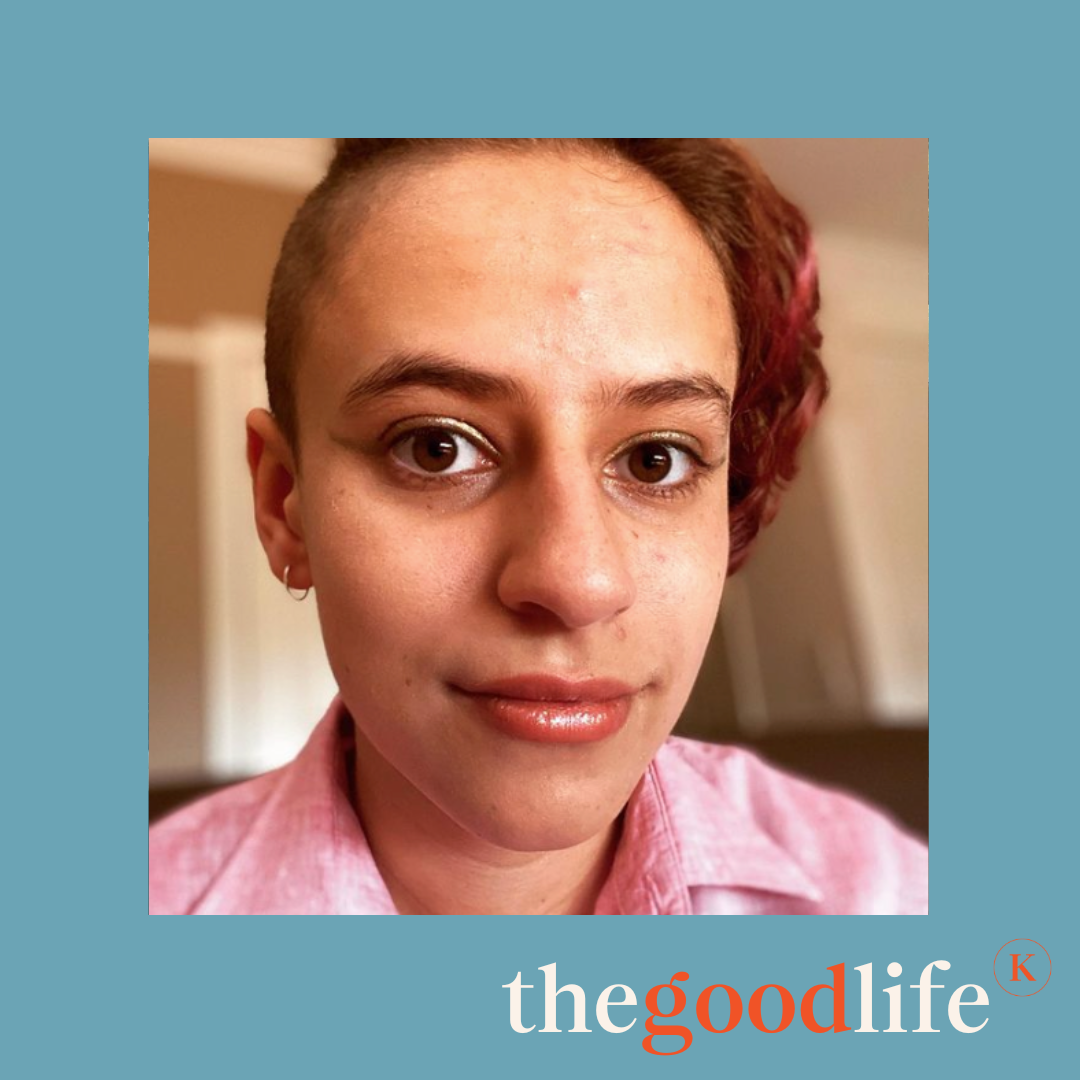The Good Life: Shadia

When I was growing up, there was a lot of deficit-based language when it came to Autism. People used to say, “You don’t look Autistic”. I remember feeling saddened that appearing less Autistic was seen as a strength.
My advocacy started when I was 13 years old. I decided that I wanted my teachers to understand what it is like as a high-masking student. My anxiety is constant; however, my neutral facial expression doesn’t indicate that anything is wrong. I also tend to laugh when I am distressed, indicating that l’m happy, when I’m actually experiencing the opposite. The only times my disability was ‘seen’ was when I’d have a panic attack or meltdown.
I wrote a letter that my Mum took into a parent-teacher interview, it shared all of the sensory issues I was experiencing in class. Some of my teachers requested to hear more and I gave a talk at school. Afterwards, my Entrepreneurship teacher approached me with an idea to start a business presenting to other schools and organisations. Today my business, Autism Actually, which I run with my Mum, offers a range of services for organisations, parents, teachers, students, and Autistic individuals where we equip them with knowledge and appreciation of Neurodivergence.
Autistic Mentors
I still remember when I met my first Autistic mentor and the feeling of relief knowing that I had found my people!
For many Autistics, we don’t always relate to our same-aged peers and may prefer to connect based on shared interests and activities. As a young person going through school, it can be challenging to find people with shared interests who understand our ways of communicating. Mentors can act as role models, providing a social connection and validating our experiences.
One of my proudest moments was travelling to present at the Australia Pacific Autism Conference in Singapore. I’m so grateful to my Autistic mentors, who have given me the confidence to share my perspectives with the wider community.
A Passion for Animals
I feel more comfortable being in the presence of animals than most people. They don’t judge my Autistic traits or perceived social blunders. I don’t have to process speech or talk a lot; in fact, animals often prefer silence. I remember vividly when I met a pony for the first time at about the age of six, and being enraptured by horses ever since. One of my fondest memories was meeting my childhood dog and learning he would be coming home with us. I still remember the joy I felt as he sat in my lap and I held him.
Since speaking to fellow Autistic animal lovers, I’ve realised that an affinity for animals is a shared experience for many of us and a powerful way to connect. Being around Autistic individuals, sometimes with very different profiles to myself, and finding commonalities has validated and strengthened my positive Autistic identity. By connecting with non-speaking Autistic individuals, I’ve found we actually have a lot in common which has helped me to appreciate the diversity of the Autistic community. I’m grateful to have non-speaking Autistic mentors and role models in my life, such as Tim Chan, who have shown me the significance of access to communication and community understanding.
When it was time to think about what I wanted to do for my career, I felt torn between my interests in advocacy, disability and animals. This was when I discovered the realm of animal-assisted services (therapy animals and assistance animals). I decided to study speech therapy and Animal Behaviour and Training. I have an interest in Augmentative and Alternative Communication. I am committed to listening to and amplifying marginalised voices in our communities, such as those with complex communication and support needs.
Advice for a Good Life
To me, a good life means feeling fulfilled and content, being able to pursue my passions, connection to the community, and being surrounded by a strong support network. Having support from my friends, family, and chosen family is really important to me. I love the idea of interdependence and acknowledging that we all rely on each other, and that it is okay to ask for help and support as part of a connected community.
When I was younger, I thought I would never find people I could relate to – now, with so many autistic role models from a variety of backgrounds, cultural identities, gender and sexual identities, and support needs, I no longer feel isolated.
The biggest thing I want to emphasise to parents is that it can be easy to become overwhelmed with different viewpoints when discovering a family member is Autistic. When I was young, deficits-based perspectives regarding autism were commonplace, with the majority of discussions being led by non-autistic professionals. I would encourage you to seek out autistic voices.
And finally, I would tell my younger self that being autistic is a difference to be embraced and celebrated, not something to feel ashamed about. Accepting my challenges is an important part of developing a positive autistic identity. I do not need to compare my self-worth and achievements to peers and neurotypicals; I am enough as myself.
Shadia (they/them) is 22 years old, proudly Autistic and queer, and is the owner and founder of Autism Actually. They are studying Bachelor of Speech Pathology (Honours) and Cert IV in Animal Behaviour and Training, with the long-term goal of specialising in Autism and animal-assisted therapy. They are an ambassador for the not-for-profit Autistic-led organisation Yellow Ladybugs.
Some of the advice that Shadia has shared is taken from the Yellow Ladybugs book ‘Supporting Autistic Girls and Gender Diverse Youth’ a neuro-affirming guide for parents, teachers and allies. You can find out more about Shadia’s journey on Instagram.
In our social media series #StoriesOfTheGoodLife we explore what a good life means for people with disability. People from all walks of life, living rich, full and meaningful lives on their own terms.
Funded by the Australian Government Department of Social Services.